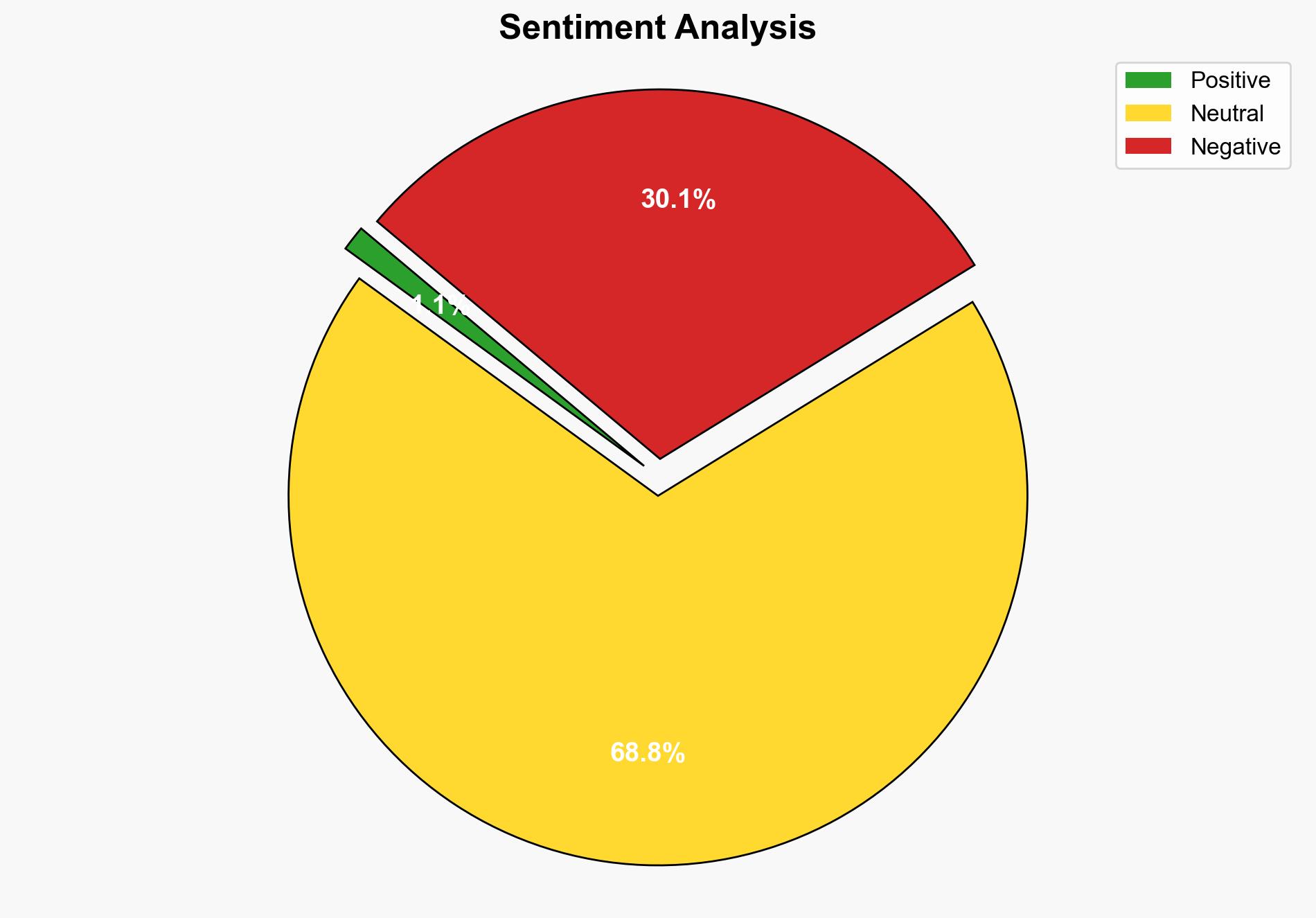Israeli army says a missile fired from Yemen intercepted – RTE
Published on: 2025-09-11
Intelligence Report: Israeli army says a missile fired from Yemen intercepted – RTE
1. BLUF (Bottom Line Up Front)
The most supported hypothesis is that the Houthi rebels, backed by Iran, are intensifying their military actions against Israel as part of a broader regional conflict. This is supported by the pattern of repeated missile and drone attacks from Yemen. The confidence level in this hypothesis is moderate, given the complexity of regional dynamics. It is recommended to enhance intelligence sharing and defensive capabilities in the region to mitigate further escalations.
2. Competing Hypotheses
1. **Hypothesis A**: The Houthi rebels are independently escalating their attacks on Israel to assert regional influence and retaliate against Israeli strikes on their positions.
2. **Hypothesis B**: Iran is directing the Houthi rebels to attack Israel as part of a coordinated strategy to destabilize the region and support Palestinian allies, leveraging the ongoing conflict in Gaza.
Using the Analysis of Competing Hypotheses (ACH), Hypothesis B is better supported due to the strategic alignment between Iranian interests and Houthi actions, as well as historical patterns of Iranian support for proxy groups in the region.
3. Key Assumptions and Red Flags
– **Assumptions**: It is assumed that the Houthi rebels have the capability and intent to conduct such operations independently. Another assumption is that Iran has a direct influence over Houthi military decisions.
– **Red Flags**: The lack of direct evidence linking Iran to specific operational directives for the Houthi attacks. Additionally, the potential for misinformation or propaganda from involved parties could skew perceptions.
4. Implications and Strategic Risks
The continuation of missile and drone attacks from Yemen poses a significant risk of regional escalation, potentially drawing in other state actors. Economic impacts could arise from disrupted trade routes and increased military spending. Cyber threats may also increase as part of asymmetric warfare tactics. The psychological impact on civilian populations in affected areas could lead to heightened tensions and instability.
5. Recommendations and Outlook
- Enhance regional defense systems and intelligence collaboration to detect and intercept threats more effectively.
- Engage in diplomatic efforts to de-escalate tensions, potentially involving third-party mediators.
- Scenario Projections:
- Best Case: Successful diplomatic interventions lead to a ceasefire and reduction in hostilities.
- Worst Case: Escalation into a broader regional conflict involving multiple state actors.
- Most Likely: Continued sporadic attacks and retaliations, maintaining a state of low-intensity conflict.
6. Key Individuals and Entities
– Yahya Saree
– Ahmed Ghaleb Nasser Al Rahawi
– Anee Alasbahi
7. Thematic Tags
national security threats, cybersecurity, counter-terrorism, regional focus




